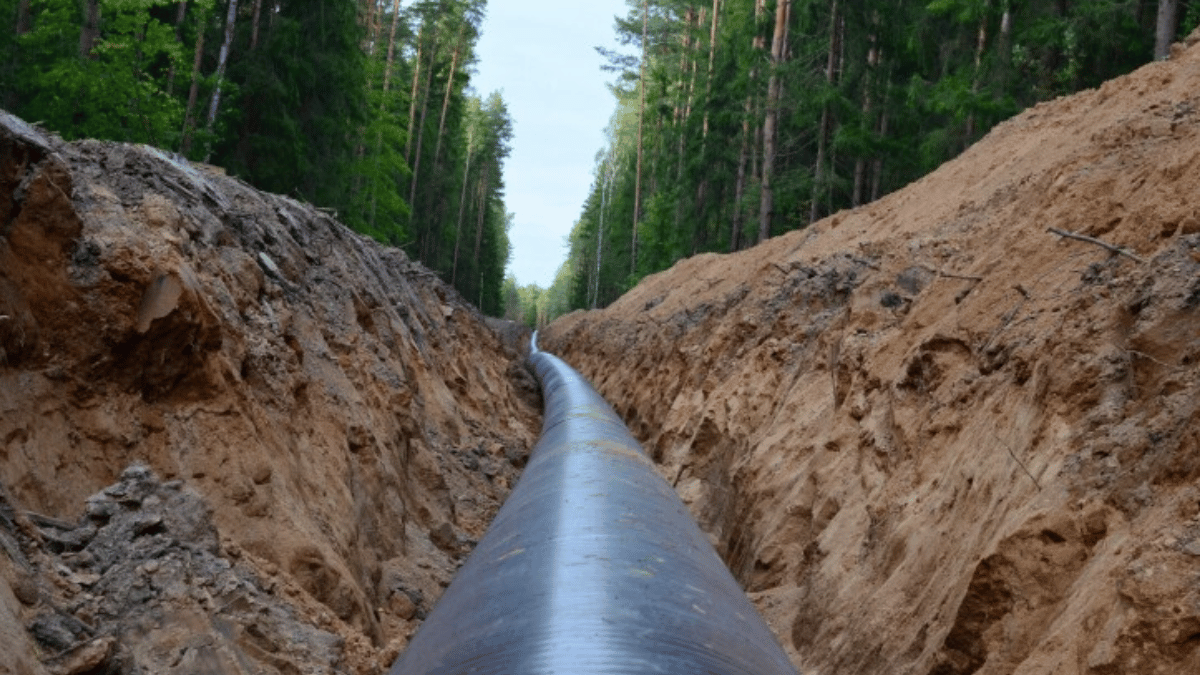A recent decision by the Biden administration to suspend permitting for new export terminals for liquefied natural gas has drawn criticism from West Virginia lawmakers.
To hear what impact the decision has on U.S. LNG exports, Curtis Tate spoke with Sam Reynolds and Ana Maria Jaller-Makarewicz of the Institute for Energy Economics and Financial Analysis, an organization that favors a faster transition away from fossil fuels.
This interview has been edited for length and clarity.
Tate: What does the pause on permitting for new LNG export terminals really mean?
Reynolds: Just for perspective, the U.S. is currently the largest global LNG exporter worldwide, we export about 86 million tons of liquefied natural gas a year. That’s more than Qatar and Australia, which are the next two largest. The U.S. currently has five projects under construction to export more LNG that would nearly double that amount over the remainder of the decade. Now, the U.S. pause on permitting, does not affect any of the existing or under construction projects. So that’s really important for consumers around the world to know that the U.S. is still on pace to nearly double its export capacity, and it’s already the largest worldwide.
Right now, in Asia, the U.S.’s largest customers are Japan and South Korea, and a lot of these new export facilities in the U.S. are justified under the impression that our customers need more of this LNG. In fact, if you look at these two largest buyers, Japan and South Korea, both are reducing their natural gas and LNG demand, and actually quite dramatically. So in Japan, LNG exports peaked in 2014 and have declined ever since. And they actually fell 8 percent last year, which is more than double the rate of decline in previous years. Japan is upping its nuclear and renewables capacity, and actually doesn’t want any more of this very expensive fuel, that is LNG. It’s opting for cheaper resources. and South Korea is very similar. LNG demand fell 4 percent last year, as it brings on cheaper energy sources like renewables and nuclear.
Tate: What about Europe? Didn’t Putin’s invasion of Ukraine cause European countries to become more reliant on U.S. LNG?
Jaller-Makarewicz: So while the U.S. was thinking, ‘Oh, Europe is in a big crisis, and we really need to step in to supply all the LNG that they need,’ at the same time Europe was working on their strategies to reduce gas demand. So what we see today, at the beginning of 2024, is a different reality than at the beginning of 2022. So what we have been saying in Europe, and I think that’s also the concern for the U.S. is that we need to analyze today’s conditions. For example, the gas demand in Europe reduced 20 percent In the last two years. Nobody could expect that. We could agree in certain instances, there’s some part of gas demand destruction. Part of it. But a great majority of it has been implementation of energy efficiency measures on gas demand management, on renewables. The mentality in Europe has changed now.
Tate: Can countries turn to other sources for LNG?
Reynolds: The growth, if you look at the growth markets for LNG demand, where is demand actually increasing? And the largest sources of growth for this product are in South Asia, India, Bangladesh, Pakistan, and Southeast Asia, Vietnam, Philippines, Thailand, Singapore. Now, these are much more price sensitive countries, they don’t have the same amount of wealth that Europe, Japan and South Korea have to spend on this relatively expensive product that is U.S. LNG.
And in fact, our main competitors for supplying these markets are Qatar and Australia, which are much cheaper sources of supply to this region. So they’re going to be making an economic decision about where to buy LNG. And actually, since the pause, we’ve seen a spate of deals announced with Qatar to buy more of their LNG. So it’s not necessarily that these countries are turning away from the U.S. specifically, because of the Biden pause. But there is an economic calculation to be made. Qatari LNG can often come in five to six times cheaper than U.S. LNG, which has to be shipped all the way around the world.
Jaller-Makarewicz: So I want to add something here. When the crisis started in Europe, Europe realized the dangers of depending so much on one supplier. That was the main problem that Europe was facing. So I don’t think they’re going to allow the same thing to happen. They are saying we need diversification of sources. So there will be up to a point where they will say that’s it. We need to diversify. We cannot accept more U.S. LNG, because we need to have more sources supplying the gas and LNG to Europe. So that also comes into play. Europe is under a lot of pressure for not repeating the mistakes of the past.
Tate: Has the Russia-Ukraine war accelerated the adoption of renewables and energy efficiency in Europe?
Jaller-Makarewicz: I can say that. And for example, in energy efficiency, before we were not talking about that topic, and suddenly, look, in September of 2022, I was in Madrid for an event. And it was hot. And they had a law that they couldn’t have the air conditioners, they had to have them up to a certain level, because they didn’t want to use more energy. We also got lots of talk here, the thermostats in the winter would have just one degree less, so they started to think about us as consumers, we could also do something to reduce it with our consumption. And it was not talked about like that before. Now it was decided, we need to speed up the renewables, we need to reduce all the problems with the bureaucracy and all that to allow those tax breaks to come into operation. So they accelerated that. I can say that they accelerated that.
